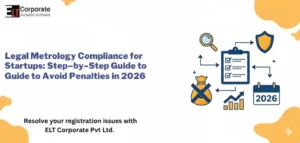High Court of Delhi in the matter of Ajay Kumar Singh vs Union of India and Ors have given the directions to the central government to evolve a mechanism for regular checks of E-commerce sites for the proper and mandatory compliance with Legal Metrology Rules and LMPC.
It is mandatory for every E-Commerce site to comply with the Legal Metrology Laws on Market place E-commerce entities.
What is an E-Commerce Site?
E-commerce is better known for electronic commerce. The websites of e-commerce are primarily built to connect buyers with products or services by the way of online trading. Trading through E-commerce has made the world easier and faster and people can shop while sitting at their home and get everything online whatever they want to have. A businessman who is willing to sell his products or service can do it easily through E-commerce site and put all its products and services along with the prices on the site and from there any buyer can purchase any commodity or product without going anywhere outside of their house.
Benefits of an E-Commerce Site
It has various benefits such as
- It is less time-consuming,
- People can go for more options within a limited period of time.
- Comparison of products can be made easily, etc.
In today’s era the world is moving faster and people are just willing to do this smart work which makes them explore more with both quality and quantity.
Examples of E-Commerce Sites
Several e-commerce websites are ruling the world on the Internet and gaining higher success in the business while attracting customers all over the universe. Some of the E-commerce websites’ examples are given below:
- Flipkart
- Shop clues
- Paytm mall
- Amazon
- Jabong
- Snapdeal
- Myntra etc.
While checking out the above-mentioned E-commerce websites the concept in your mind in regards to the E-commerce website must be clear because in this century every one of us is dealing with these websites in one way or the other. These are the websites that give us the platform to shop for everything we want to buy while just sitting at home and without going to the market physically.
LMPC Directions by Delhi High Court to the Central Government?
In April 2022 the High Court of Delhi gives the directions to the Central Government to evolve a mechanism for regular checks on e-commerce websites for better and proper compliance with the legal Metrology rules and also to ensure compliance with all the other laws dealing with display and packaging of products.
Assurance of LMPC Declarations by Central Government
The PIL, which stands for Public Interest Litigation was filed before the Delhi High Court seeking directions from the court to ensure the display of details on the package of the commodity like:
- Minimum retail price of the product
- Seller details including GST number
- Name of the manufacturer
- Country of origin of product etc. on the E-commerce website.
All the above directions were seeking to the Ministry of Consumer Affairs Food and Public Distribution.
In the petition, acting Chief Justice Vipin Sangi and Justice Navin Chawla said “if there is non-compliance, you have to take action. You should have your mechanism, there should be vigilance. Why should you depend on the petitioner? You should keep track of initial offenders, apart from conducting regular inspections.”
Wich means the authority or the respective department should keep a proper and regular check on the declarations made on the package by the E-commerce site and the seller through inspecting the websites and crack the initials offenders so that the offense of non-compliance would not take place on the E-commerce platform.
LMPC Rule 6 of Rules, 2011
The rule says that every package of the commodity shall have the following:
- Retail Sale Price,
- The name and address of the manufacturer/ Packer/ and Importer,
- Month and the year in which the commodity is pre-packed, Manufactured, or imported
- Email address,
- Contact number of the person or the authority who can be contacted in case of a complaint by the consumer, Etc.
LMPC Rule 6 of 2020, Rules
The above-mentioned rule tells that every seller should provide all the relevant and mandatory details about the product, goods, and services offered by him for the sale which should include the origin of the country for enabling the customer or the consumer to take an accurate decision at the time of pre-purchase.
Order of Delhi High Court on LMPC E-Commerce Sites
The High Court of Delhi said that “the respondents have not put in place a mechanism for conducting regular checks or periodical basis of all e-commerce sites to ensure compliance with aforesaid rules. Respondents should examine this aspect and place before this quote a mechanism that they wish to evolve to ensure compliance regularly. Respondents should also file a status report with regards to notice issues two several e-commerce sites.”
Furthermore, in the above-mentioned matter pending before the Hon’ble High Court of Delhi has granted six weeks for filing the affidavit and thereafter four weeks to petitioner to file the rejoinder. On the commerce websites having proper declarations as per the rules of Legal Metrology Act Commodities will be heard on 24th November 2022.
Consumer Protection (E-Commerce) Rules, 2020
The ministry of consumer affairs, food, and public distribution on July 23rd, 2020 notified the Consumer Protection E-commerce Rules, 2020 under the Consumer Protection Act 2019.
The motive of the Rules and the Act of LMPC is to secure the interest of the consumer and prevent unfair trade practices in E-commerce.
The Rule and the Act ensure transparency in the platform of e-commerce and also strengthens it to govern the same.
LMPC Obligations of the Seller
The rule sets the certain obligations that are imposed on the seller which the seller needs to adhere mandatorily. A nodal officer has been appointed to ensure the proper compliance of the Rules and the Act in the interest of the Consumer. Every seller is required to have registration under LMPC. Obligations to be fulfilled by the seller of the commodity are:
- Ensure and protect the interests and rights of the consumer by compliance with the rules of LMPC.
- The rights of the consumer should be secured by providing them the accurate information.
- Proper declarations should be made regarding the commodities under LMPC.
- There should be transparency about the product and the service.
What are the Restrictions Imposed on the Seller Under LMPC?
The Rules also impose and clarify the obligations and the restrictions on this seller in the case of followings:
- Defective product,
- Deficiency in the product,
- Late delivery,
- Spurious goods and services,
- Pricing of the product, etc.
The rule also specifies that the charges of the cancellation shall be null unless the same charges are payable by the platform because of cancellation.
It is the obligation of the Platform and the seller should provide the authenticity of goods on the e-commerce websites platform and if they do not comply with the same then they will be liable to for such product, service, or commodity.
Contravention of the Rules
- In case of any contravention of the rule of LMPC then in such a situation, the authority has a right to investigate such contravention and such authority also has a right to impose a fine or give a sentence of imprisonment in case the seller is found guilty.
- The seller is bound to comply with the rules which are incorporated under the Legal Metrology Rules and other applicable laws.
- If there is any kind of unclarity found in regards to the product then the penalty given under the Legal Metrology Rules shall be levied on the E-commerce entities in question.
Any manufacturer, seller, packer, or importer who is dealing in packaged commodities has to comply with all the rules of the Indian Legal Metrology System







